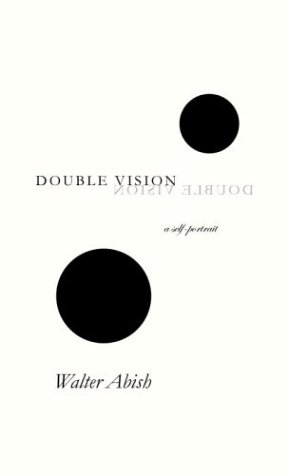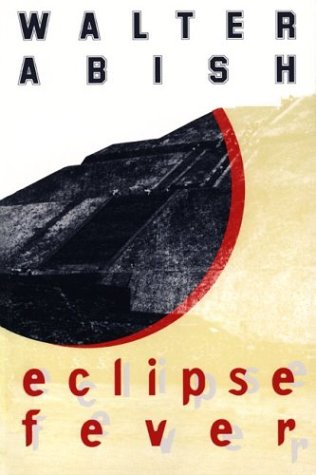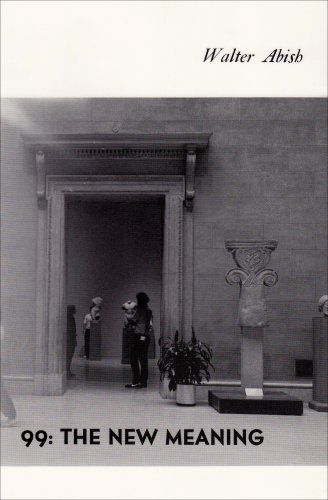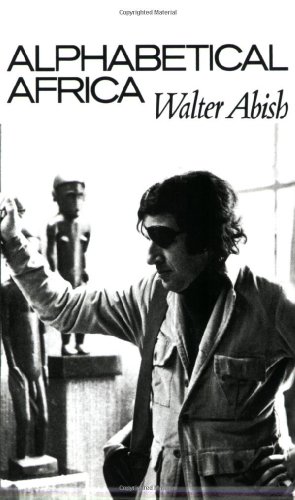Background
Abish, Walter was born on December 24, 1931 in Vienna, Austria. Came to the United States, 1957. Son of Adolph and Frieda Abish.


(Does one ever escape from the family? How much do we unde...)
Does one ever escape from the family? How much do we understand about our own past? How do we come to be who we are? Walter Abish, the internationally acclaimed author of How German Is It, examines these questions through the prism of his own experience, and confronts and encapsulates the historic upheavals of the mid-twentieth century in this brilliant, deceptively simple, and quietly wrenching account of his two journeys. The first begins in Vienna, where Abish was born in the 1930s in the Jewish, but not-too-Jewish, household of a prosperous perfumer. Then it ricochets around the world as his parents flee first to France (his mother had to sneak alone across the Italian border), then to war-torn Shanghai under Japanese occupation, just ahead of Mao’s army, then to Israel. Incapable of understanding his family’s desperate situation, Abish as a boy creates his own private world, filtering out precarious and terrifying realities. Abish describes fantastic events in the coolest tones. In precise, haunting detail, he records the perceptions of a child who registers and remembers what he will only later understand. He writes of the day in the park when a stranger suddenly screams “Jews out!” and he and his frail grandmother run for the exit in a panic as the other children and grandmothers stand and watch; the day his father is released by the Gestapo because a man in the room owes him money that he has never tried to collect and says, “Let Abish go—he’s okay”; of the time his father speaks to him about inheriting his perfume business, as they stand on the deck of a ship bound for China. The first journey recounts the flight; the second journey chronicles the return: Abish writes about how, in the 1980s, he went on a tour to Germany to launch the translation of his award-winning novel How German Is It—a book he wrote without ever having set foot there, deliberately, because he wished to elicit the idea of Germanness in what was “a fantasy of Germany.” This tour of what to him is an unfamiliar society includes a side trip to Vienna, where he glimpses the life he might have experienced and has the horrifying feeling that he never left. Double Vision is a book that cuts to the quick. With unflinching candor, humor, and affection, Abish re-creates the way it feels to be a child and to look at your parents and wonder who they are. To be an adult and catch them in every corner of your personality. To look back on the world of your youth and realize both what you noticed and what you missed. It is a stunning achievement.
http://www.amazon.com/gp/product/0679418687/?tag=2022091-20

(This truly magnificent achievement (William H. Gass), Wal...)
This truly magnificent achievement (William H. Gass), Walter Abish s first novel since the award-winning How German Is It, set in the high-gloss world of contemporary Mexico s societal and intellectual elite. Eclipse Fever explores the reaches of corruption and the limits of political, economic, and cultural power. Underlying its concern with art, with emotional attachments, and with the differing needs of men and women is a perpetual current of suspense and psychological tension. Among the multifaceted characters whose lives interlock are Alejandro, a once-prominent literary critic fallen into disfavor; his estranged wife, Mercedes, whom he suspects of openly conducting an affair with an American writer; Bonny, the writer s runaway daughter, who is made to witness a calamitous sequence of events that culminates in murder; Preston, an American industrialist, and his sexually frustrated wife, Rita; and the unscrupulous art dealer Pech. As the lives of these people press together, as they buckle and collapse, the novel holds up a mirror to a moment in which we lived the end of a millennium, of an era and to the perils, temptations, and hysteria that lie just below the surface of the so-called American century. "May well be one of the handful of essential American works emanating from the decade preceding the end of the second millennium." Harold Bloom, Washington Post
http://www.amazon.com/gp/product/1567920365/?tag=2022091-20

(The five stories that make up 99: THE NEW MEANING are cre...)
The five stories that make up 99: THE NEW MEANING are created entirely from fragments of other works. From Abish's introduction: These works were undertaken in a playful spirit--not actually 'written' but orchestrated. The fragmented narrative can be said to function as a kind of lure--given the constraints, anything else would be beyond its scope. In using selected segments of published texts authored by others as the exclusive 'ready made' material for these five 'explorations,' I wanted to probe certain familiar emotional configurations afresh, and arrive at an emotional content that is not mine by design. Includes photos by Cecile Abish.
http://www.amazon.com/gp/product/0930901665/?tag=2022091-20

( “Walter Abish has dovetailed his novel within a Procrus...)
“Walter Abish has dovetailed his novel within a Procrustean scheme that has the terrifying and irrefutable logic of the alphabet. Alphabetical Africa is in the line of writers such as Raymond Roussel, Raymond Queneau, Georges Perec and Harry Mathews, who have used constrictive forms to penetrate the space on the other side of poetry.” — John Ashbery Alphabetical Africa, Walter Abish's delightful first novel, is an extraordinary linguistic tour de force, high comedy set in an imaginary dark continent that expands and contracts with ineluctable precision, as one by one the author adds the letters of the alphabet to his book, and then subtracts them. While the "geoglyphic" African landscape forms and crumbles, it is, among other things, attacked by an army of driver ants, invaded by Zanzibar, painted orange by the transvestite Queen Quat of Tanzania, and becomes a hunting ground for a pair of murderous jewel thieves tracking down their nymphomaniac moll.
http://www.amazon.com/gp/product/0811205339/?tag=2022091-20
novelist university professor writer
Abish, Walter was born on December 24, 1931 in Vienna, Austria. Came to the United States, 1957. Son of Adolph and Frieda Abish.
Doctor of Letters (honorary), State University of New York, Oneonta, 1996.
At a young age, his family fled from the Nazis, traveling first to Italy and Nice before settling in Shanghai from 1940 to 1949. In 1949, they moved to Israel, where Abish served in the army and developed an interest in writing. He moved to the United States in 1957 and became an American citizen in 1960.
Since 1975, Abish has taught at several eastern universities and colleges.
He has also received a Guggenheim Fellowship and a MacArthur Fellowship, and sits on the contributing editorial board of the literary journal Conjunctions. Abish is married to Cecile Gelb, a photographer and sculptor.
He served on the board of International Poets, Playwrights, Editors, Essayists and Novelists association from 1982-1988. He was on the board of governors for the New York Foundation for the Arts.
He has worked/taught at Empire State College, Wheaton College, University at Buffalo, The State University of New York, Columbia University, Brown University, Yale University, and Cooper Union.
Abish"s work shows both imaginative and experimental elements. In Alphabetical Africa, for instance, the first chapter consists entirely of words beginning with the letter "A." In the second chapter, words beginning with "A" and "B" appear, and so on through the alphabet. In the Future Perfect is a collection of short stories where words are juxtaposed in unusual patterns.
(Does one ever escape from the family? How much do we unde...)
( Ulrich Hargenau testifies against fellow members of a G...)
( “Walter Abish has dovetailed his novel within a Procrus...)
(The five stories that make up 99: THE NEW MEANING are cre...)
(This truly magnificent achievement (William H. Gass), Wal...)
(Book by Abish, Walter)
(Book by Abish, Walter)
(First Edition)
Fellow American Academy Arts and Sciences. Member Pen Club (executive board directors 1982-1988).
Married Cecile Abish.
